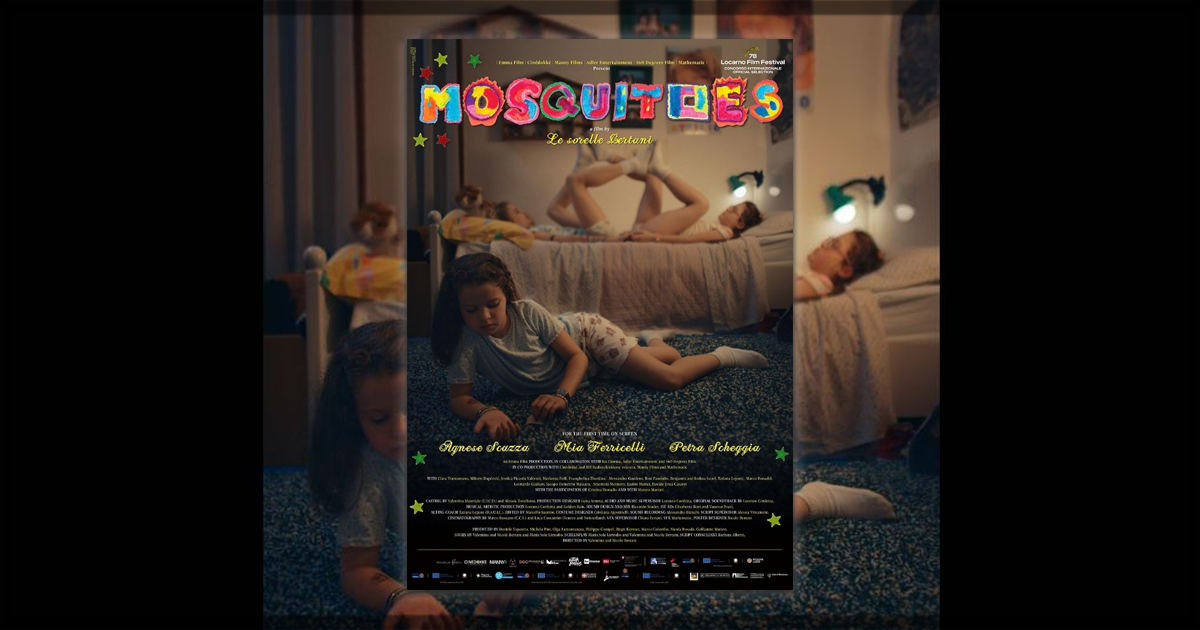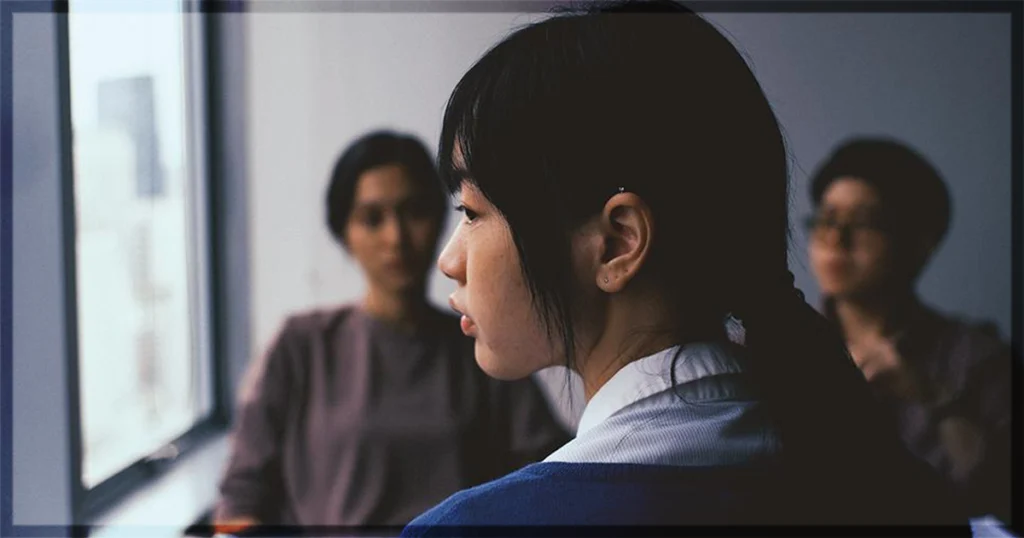In their first directorial effort as a directing duo, Nicole and Valentina Bertani debut at the Concorso Internazionale of the Locarno Film Festival with Mosquitoes (Le Bambine). In 2022, Valentina screened her first film, The Crown Shyness (La timidezza delle chiome) at the Giornate degli Autori of the Venice Film Festival. In their latest film, the duo loosely bases their work on their childhood memories, from which the sisters borrow inspiration to draw a throwback look at the end of the 1990s. Set in 1997, the film narrates the story of Linda (Mia Fericelli), a girl who lives in a Swiss luxury villa with her mother, Eva (Clara Tramontano), and her wealthy grandmother. Cconstant clashes between her mother and grandma make Eva decide to move from the villa to the flat she grew up in, located in Italy. Linda befriends the sisters Azzurra (Agnese Scazza) and Marta (Petra Scheggia), who will live in different situations together.
Firstly, Le Bambine is a film that focuses on the childhood of those three girls. Each of them has a different age, ranging from eight to ten years old; yet, they share the curiosity and will to explore the world around them. In this age, our universe is limited to where you may access, whether it is from your street, the parks you play at, or your school. There is a geographical limitation to your comprehension of the world. The Bertani sisters imprint a fantastical approach to symbolize the childhood curiosity, such as running in the street and feeling like the world stops due to one’s high velocity.
In this sense, the style borrows from a hyperstylistic method, placing a particular plasticity of the objects and the world to design a tonal difference. The costumes by Cristiana Agostinelli convey an artificiality that reverberates in the stylized scenes, such as the metallic bodysuit that Azzurra wears while running as a superhuman. They transport the audience to the specific action the character is doing. Yet, the directing does not explore the hyperstylization enough to transport the audience to a different reality, the one they are trying to emulate.
Accordingly, the film attempts to find a balance between the sweetness of childhood and the darkness around the infants. In this case, a few subplots highlight the problematic issues revolving around the caretakers of those children, such as Eva and her heroin addiction, and the sisters’ parents’ compulsions. Suddenly, each of the kids is responsible for taking care of themselves; Linda is the central provider for her home, as she uses the credit card her grandmother gave her. The film utilizes the parents’ lack of participation as a starting point for the children’s independence. Eva becomes the stereotype of a cool mother: she takes the children out to visit places, their role model of beauty, and she provides direct interaction and sincerity with them. Still, the film does not imply the reasoning behind the sisters’ parents’ absence and the central motivation for them.
Nevertheless, the stylistic and irreverent portrayal of childhood is not enough to overcome the shallowness and lack of substance in the narrative and visual components of the film. Notably, the film is unsure whether to discuss the absence in childhood or the fantastical opportunity of exploring the world on their own. The result is an unbalanced film, unclear if it is exploring the dirtiness and poor conditions to raise a child due to sex compulsion and heroin addiction, and the over-exposed colors in the scenarios and lightning during the excitement. Unfortunately, an impressive performance by Clara Tramontano gets lost amidst the inconsistencies of the directing and the script. Yet, Tramontano delivers balanced acting, ranging from the explosiveness and happiness to the ultimate depression caused by the heroin use, deepening the dramatic aspect of Eva’s choices, despite the film not engaging in questioning them.
In the end, Mosquitoes (Le Bambine) is a throwback to the infancy of the directors, who are unsure where to lead this story. Consequently, the film is tonally incoherent, shifting constantly from a dramatic note to the over-the-top comedy, which does not work on a grand scale. Hence, the film diminishes outstanding works, such as Clara Tramontano’s performance and Cristiana Agostinelli’s costume design. Finally, the first work together by the Bertani sisters is a disappointing recounting of their childhood, landing on a final result that does not understand its qualities and how it wants to tell this story. Unfortunately, it ends up as a failed attempt to emulate a foregone era.
Mosquitos (Le Bambine) recently played at the Locarno Film Festival.
Learn more about the film at the Locarno site for the title.
You might also like…
‘Human Resource’ Film Review: Nawapol Thamrongrattanarit’s Return to Realism Reckons With Personal Agency in a Harsh World


